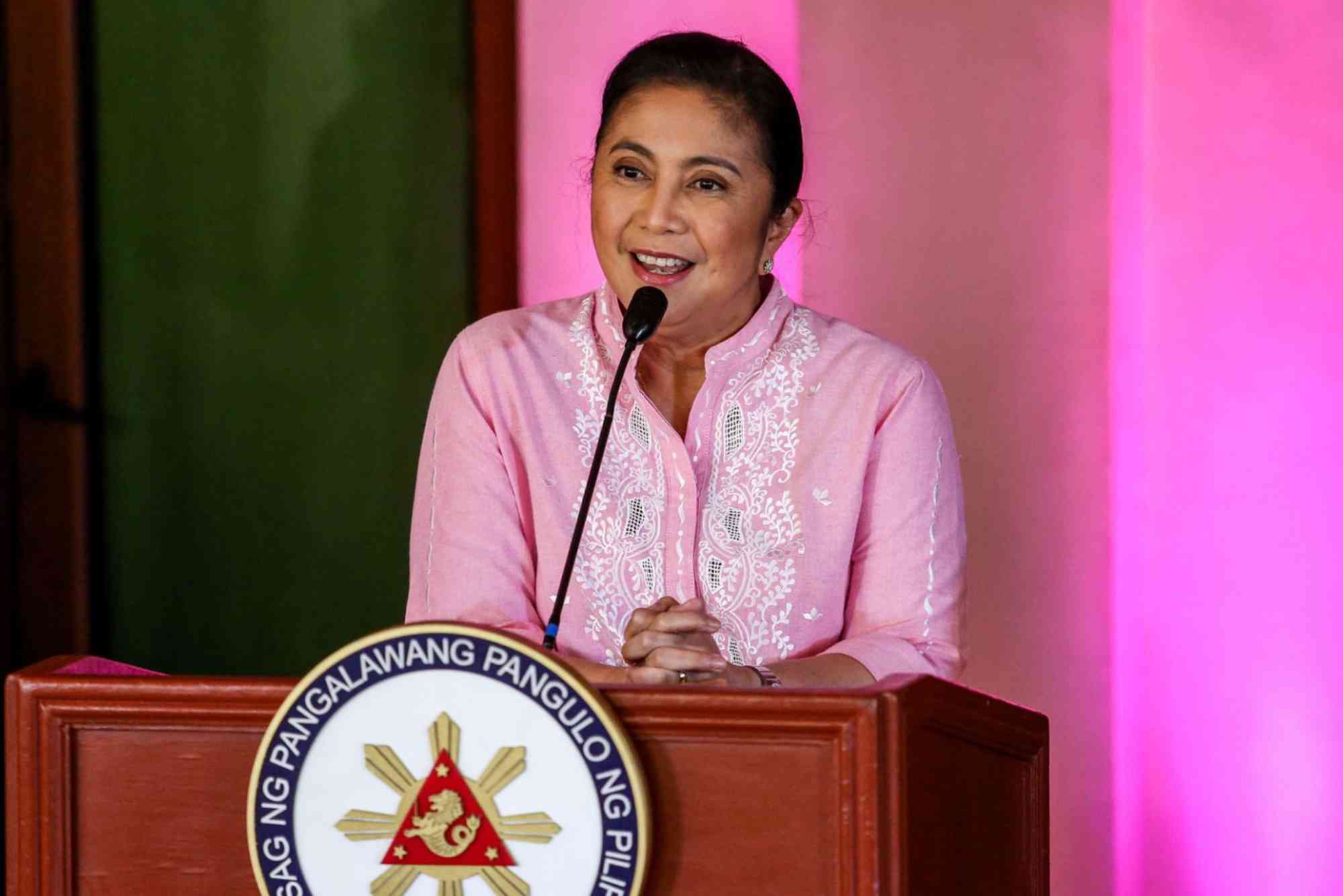Introduction
Education has always been an important foundation for leaders who want to serve their communities effectively. In the Philippines, one of the most inspiring figures who embodies the power of knowledge and perseverance is former Vice President Leni Robredo. Her story is not only about her journey through politics but also about how her academic life shaped her values and career path. Understanding Leni Robredo’s educational background gives us a clearer picture of how her training, discipline, and commitment to learning influenced her achievements in law, public service, and governance.
Early Life and Education
Leni Robredo was born Maria Leonor Santo Tomas Gerona in Naga City, Camarines Sur, on April 23, 1965. Growing up in a modest household, she was taught by her parents the importance of hard work, humility, and education. Her father, Antonio Gerona, was a respected judge, while her mother, Salvacion Santo Tomas, worked as a teacher. These influences helped her develop a deep appreciation for education at an early age.
Her academic journey began in Naga, where she excelled in her primary and secondary education. Teachers often described her as hardworking, quiet, but very determined. The values instilled in her home and school life would later reflect in her dedication to public service. When we explore Leni Robredo’s educational background, it becomes clear that her academic discipline and achievements provided her with the intellectual and moral grounding to take on leadership roles later in life.
University Years and First Degree
After finishing high school, Leni pursued higher education at the University of the Philippines Diliman, one of the most prestigious universities in the country. She took up a Bachelor of Arts degree in Economics, a course that challenged her to analyze problems with critical thinking and a data-driven perspective. Graduating in 1986, she completed her degree at a time when the Philippines was undergoing major political transitions. This context further inspired her to consider how education could empower individuals to contribute to nation-building.
Her economics training gave her a strong foundation in understanding poverty, inequality, and development. These would later become recurring themes in her advocacy work as both a lawyer and a public servant. For Leni Robredo, her university experience was not just about academics. It was also about witnessing the pressing realities of the country and recognizing that people needed leaders who could use education to bring about meaningful change.
Law School and Legal Training
Leni Robredo’s educational background took a significant turn when she decided to study law. She enrolled at the University of Nueva Caceres in Naga City, a choice that reflected her desire to stay close to her roots while pursuing higher education. While studying law, she balanced her time as a student, wife, and later mother. Despite the challenges, she graduated with her law degree in 1992 and successfully passed the Philippine Bar Examination in 1997.
This achievement marked a major milestone in her life. As a lawyer, she was determined to use her skills not for personal gain but for helping marginalized communities. Instead of pursuing high-paying corporate roles, she focused on developmental legal work. She joined the Sentro ng Alternatibong Lingap Panligal (Saligan), a legal group that provides free services to farmers, fishermen, laborers, and indigenous people. Her role at Saligan highlighted how her legal education equipped her to fight for justice, equality, and empowerment.
Educational Influence on Her Career
Leni Robredo’s educational background is more than a set of degrees; it shaped her values and decision-making. With her economics degree, she had the analytical tools to understand systemic problems like poverty and underdevelopment. With her law degree, she had the legal framework to defend the rights of those who could not afford representation. Together, these fields of study formed the foundation of her holistic approach to governance and service.
Her time as a lawyer deeply influenced her political career. She became known as a hands-on advocate who was willing to walk into remote villages to listen to the concerns of people. This grassroots approach, rooted in her education, became the trademark of her leadership style.
Achievements in Politics and Public Service
Leni Robredo’s rise in politics was not a planned ambition but rather a response to circumstances. After the passing of her husband, Jesse Robredo, who was then Secretary of the Interior and Local Government, she was encouraged by her community to run for public office. Her educational background prepared her for this unexpected path.
In 2013, she won a seat in the House of Representatives for Camarines Sur’s Third District. During her time in Congress, she authored and co-authored bills that focused on transparency, accountability, and the empowerment of marginalized sectors. These legislative efforts showed her commitment to applying her academic and professional training for the greater good.
Her biggest achievement came in 2016 when she was elected as the 14th Vice President of the Philippines. Despite being the second woman to hold the position, she faced numerous political challenges. Still, she used her office to focus on programs related to poverty alleviation, education, and women empowerment. Through the Office of the Vice President, she launched Angat Buhay, a program that connected private organizations with local communities to address urgent social needs. Many observers noted that her programs were data-driven, transparent, and highly effective. This approach reflected her background in economics and law, where decisions are based on evidence and fairness.
Leadership Style Rooted in Education
When analyzing Leni Robredo’s educational background, one can see how it influenced her leadership style. She often emphasized listening, consultation, and evidence-based solutions. Instead of imposing decisions, she gathered insights from communities and experts, ensuring that programs were practical and sustainable.
Her economics education taught her to evaluate resources and create long-term development plans, while her law training taught her the importance of rights, justice, and inclusivity. This balance between analysis and compassion is what made her leadership stand out, especially during times when politics in the Philippines faced divisions and controversies.
Global Recognition and Academic Honors
Because of her achievements, Leni Robredo has been recognized by international institutions and academic communities. She was invited to speak at global forums and universities, where she shared her experiences in governance and grassroots development. Her work continues to inspire young Filipinos to see education not only as a personal achievement but also as a tool for social transformation.
Universities and organizations have praised her ability to integrate her educational training with real-world challenges. By combining theory and practice, she became an effective model for how leaders should use their academic knowledge in serving the public.
Frequently Asked Questions
What is Leni Robredo’s educational background?
Leni Robredo studied economics at the University of the Philippines Diliman and later earned her law degree from the University of Nueva Caceres. She passed the bar in 1997 and worked extensively as a lawyer for marginalized communities.
How did Leni Robredo’s education influence her career?
Her economics degree helped her understand poverty and development issues, while her law background gave her the tools to defend the rights of disadvantaged groups. These combined skills shaped her policies and advocacy as a public servant.
Did Leni Robredo receive international recognition for her work?
Yes, Leni Robredo has been invited to international forums, universities, and organizations to share her insights on governance, women empowerment, and poverty alleviation.
What are Leni Robredo’s major achievements as Vice President?
Her most notable achievement is the Angat Buhay program, which focused on poverty alleviation, education, health, and women empowerment. She also maintained high trust ratings throughout her term.
Leni Robredo’s educational background is a story of perseverance, service, and purpose. From her economics degree at UP Diliman to her law degree in Naga, she used education as a stepping stone toward meaningful contributions to society. Her achievements, both as a lawyer and as the Vice President of the Philippines, show how academic training can translate into compassionate and effective leadership.
For Filipinos and others worldwide, her journey demonstrates that education is not only about personal advancement but also about creating a positive impact on communities. As we reflect on her legacy, we are reminded that leaders who are grounded in knowledge and guided by values can inspire real change.




